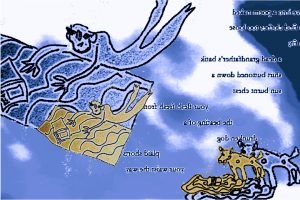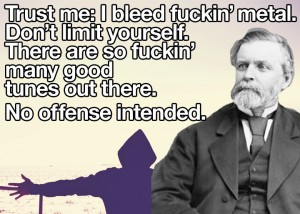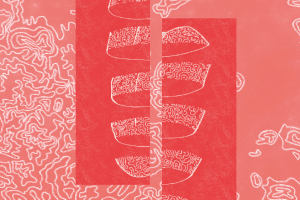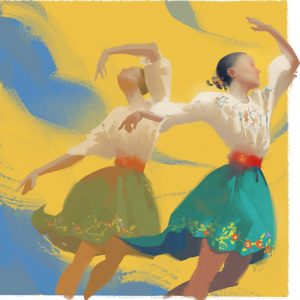
The Changing Face of Poetry
by Lucy Thynne | November 25, 2019
Mukahang Limbu is explaining to me why he writes poetry. “It can make you feel like you’re being heard. Coming from a marginalised background, and not having much representation in the literary canon, that can make you feel invisible. But being able to write yourself into that canon is really special.”
And write himself into that canon he has indeed. The rebellion against a predominantly white curriculum of poetry at school has been no small feat – Limbu arrived in the UK from Nepal aged six, and says that it was alienating at first “to speak in a language you’re not used to.” But with the encouragement of the poet in residence at his school, Kate Clanchy, he is now an extraordinarily prolific writer at only 18 years old, having been recognised by an array of international competitions and publications. He speaks as you would imagine he reads a poem: softly and with an irreducible humility, expressing a genuine love for the writers he lists as influences.
Here, the names of children are
a cold breath shivering in their father’s tonguelost like the memories of home, forgotten
by the sounds of bullets whistling, of machineheartbeats, & stories of one-handed men catching
bombs like picking fruit.(Mukahang Limbu, from ‘The Gurkhas‘)
“Mary-Jean Chan, Raymond Antrobus, Sarah Howe,” he ticks off his fingers. “Jay Bernard – everyone should read some Bernard once in their life! He uses language in such a beautiful, tender and vulnerable way. Oh, and Rebecca Perry, who I think is super underrated.” Each poet has had a different impact on him, he says, but otherwise he looks to his relationship with his mother as a stimulus, who works as a housekeeper in Oxford. “If I start writing a poem, this is often what I draw on, or my home country. It could be anything – sometimes it’s just the latest guy I have a crush on,” he admits, laughing so warmly that it’s difficult not to join in.
The world of poetry today is similarly multifarious. Whilst the word a few years ago may have only been associated with teenage angst, or exclusively for the dead white man, today its connotations are clearly changing. One might think of ‘instapoets’ like Indian-born Canadian writer Rupi Kaur, propelled to fame by the rise of social media, or the phenomenally successful Ocean Vuong, who touchingly portrays his experience as a Vietnamese-American refugee. The last criticism that could be made of poetry in 2019 is that it is ‘elite’, and young people are certainly responding, making up its main consumers. Poetry sales soared by 12% in the last year alone, with 1.3 million volumes sold. Two-thirds of these buyers were below the age of 35 and unsurprisingly, 41% fell into the 13-22 year old age bracket. Natalie Perman, a second-year poet at Oxford who is on the University’s Poetry Society Committee for this year, suggests these sales show that young people are increasingly turning to poems for clarity in our troubled times. But clarity about what exactly, and how far can poetry help?
Take mental health, for example. “As a young person now, we’re starting to recognise that reading poetry is a really important medium to reduce the stigma around mental illness,” Perman points out, articulating everything she says with such eloquence that it is easy to forget she is only nineteen. “It makes people realise that these are emotional realities that people are living with. On the other side, writing poetry can be a form of therapy for these issues, in the same way as some people really like writing a journal or are big on mindfulness.” I ask her if writing poetry helps her on this personal level and she barely hesitates. “Of course. It’s a huge part of who I am.”
when her fingers
wore the jewels
of the kedeshah
her face wore a veil;
the man touched her
but could not see beyond her eyes
in which desert sands glittered for miles.(Natalie Perman, from ‘ishah‘)
Annie Fan, this year’s President of the Oxford University Poetry Society, agrees. “I think with the rise of social media there is a lot more poetry out there, on a whole range of issues.” Also a second-year based at Oxford, Fan and Perman talk over each other with an excited, friendly ease, jumping in at each other’s sentences. “For sure,” Perman says. “Like all the ‘instapoets’.” Their comfort with each other makes it obvious to any onlooker that they share a strong creative partnership, but also an enviable friendship.” Fan is more hesitant when it comes to these ‘instapoets’. “I have mixed emotions personally about poets on Instagram like Rupi Kaur, but I think her writing shows to young people of colour in particular that their writing can be liked and valid,” they say.
These “mixed emotions” towards ‘instapoetry’ by the likes of Kaur cropped up repeatedly in my conversations with Limbu, Perman and Fan. On the one hand, we talk about the idea proposed by Rebecca Watts’ provocative essay, ‘The Cult of the Noble Amateur’, published in PN Review last year: that despite the ‘dumbing effect of social media from literature we have hitherto expected better.’ Watts does not hold back in her scathing criticism of poets who have found platforms online, arguing against this ‘slapdash assembly of words’ in a ruthless attack on Kaur’s writing. It is fast-food literature, easily consumable, and thus “artless.” Undeniably, Kaur is at risk of moving from accessibility to such simplicity that readers may find little literary merit left in her work, writing in one poem: “if you were born with/ the weakness to fall/ you were born with/ the strength to rise.” But my three young poets are unanimous in their agreement that Watts is only further upholding the notion of poetry as reserved for the elite, and disregards the interests of younger readers.
“She does have 3.8 million followers,” I say, to the vigorous nods of my interviewees. Perman agrees wholeheartedly: “I think there’s this idea that if poetry is easy to do or read, it’s not valid. But in reality, the whole ‘instapoetry’ movement is a way of making poetry accessible.” Equally, each of the poets share their worry that the success of BAME poets like Kaur and Vuong has led to a pigeonholing of their work, deemed to focus only on their experiences as minorities and little else. This is a straitjacket criterion that is dangerous when it suggests that such poets are a kind of ‘one trick pony’, and each poet at the table suggests that they can relate to this complex issue personally.
Limbu wonders aloud: “If I write about my heritage and Nepal, are my poems just a form of tourism for white readers to momentarily experience what it is like to be a person of colour? I don’t know.” It’s an interesting point, and it takes us each a moment to process. Fan ultimately agrees, keen to stress that whilst they write about their Chinese heritage and family, “it’s more complicated than that. Quite often I’ll be taking the domestic view and then expanding it into what I’m interested in.” I ask Perman for her opinion, and she is quick to confirm that whilst she writes about her Jewish background and “feeling rootless”, this is not a theme she would want to be constricted to. Fan concurs, adding that they “sometimes just write totally wacky, different poems too. Like I wrote a really salty poem addressed to all the soft boys in Oxford, which will be published soon,” they say with a laugh.
& soon, the wrens will come back
to dismantle this heavy sky laid
low with winter; to help me walk & speak
like any reasonable woman(Annie Fan, from ‘Resurgam‘)
The war on poetry by its never-exhausted critics may not be over, but both young poets and readers are clearly changing the game. Young people are exercising their economic influence in poetry sales and rejecting the tired trope of the straight white male more than ever before. So, what does the future of poetry hold, I ask? My interviewees all immediately point to each other, breaking into the poet’s lingua franca of enthusiastically praising each other’s work. After a while, however, they turn the conversation to the wider poetic stage. Fan hopes for more experimental prose poetry, excited by its leading players in the US, Claudia Rankine and Maggie Nelson. Perman is crossing her fingers for a greater readership of poetry in different languages, and for a whole conversation of distinct voices. Limbu, lastly, is less certain, but is nonetheless reassured. “I see young poets like Annie and Natalie and I’m just so excited for what is to come,” he says, and I can’t help but agree. I leave the café heartened, smiling stupidly, and feeling comforted that the future of poetry is in very safe hands indeed.
To find out more from the Oxford University Poetry Society, see their Facebook page – https://www.facebook.com/OxfordPoetrySociety/
Words by Lucy Thynne. Image by Toa Heftiba on Unsplash.




